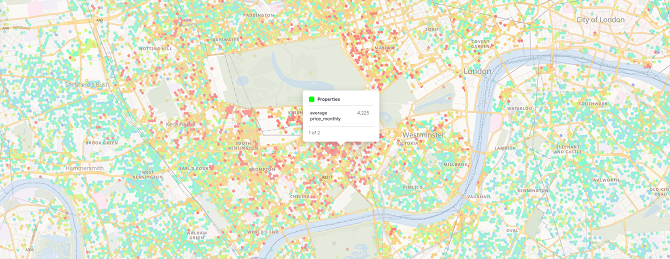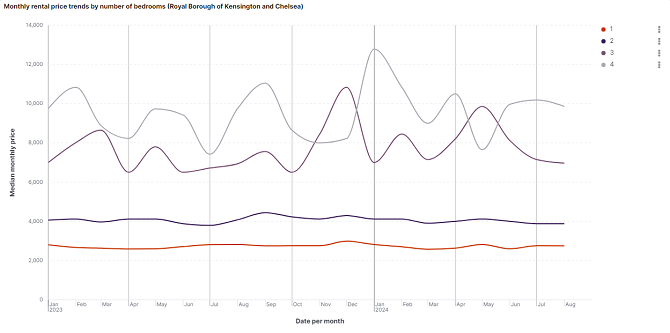Harnessing data for global mobility success
The role of global mobility (GM) teams is key for today’s international workforce. They play a pivotal role in ensuring smooth relocations so employees transitioning to new countries feel supported every step of the way. Icon’s CEO Simon Johnston and digital director Shaun Flanagan explain top-class technology’s role in supporting relocation and GM teams.



This article is taken from the Autumn 2024 issue of
Think Global People magazine
Click on the cover to access the digital edition.GM teams help assignees thrive in their new roles by setting policies, managing suppliers and maintaining open communication. Yet working to tight budgets and navigating unpredictable markets is no easy task. As the world moves towards a tech-based future, could data be central to helping GM teams overcome these hurdles and manage seamless relocations?One of the biggest concerns for GM teams is ensuring they always provide the right level of support to employees. As market conditions and personal needs evolve, this can be challenging. In a constantly shifting environment, how can they know exactly what kind of support to offer? GM must continuously take the pulse of changing markets and circumstances; a task that’s much easier said than done.Without this knowledge, GM can easily miscalculate and agree policies that set assignees up for failure. Given the cost of relocation – and of failure – finding the balance between budgets and benefits is vital. As costs escalate, it is becoming increasingly difficult to find this balance. And with GM teams under pressure to deliver within tighter budgets and ensure allowances are used wisely, they must be able to monitor assignments easily, as well as the environment they take place in.
Balancing priorities
So, how can data help? Let’s take the task of setting rental allowances for assignees as an example. Where employers fund assignees’ rental properties, allowances dictate the maximum amounts a company will pay. These are typically adjusted for family size and often set by office location or region. Recommending a budget for multiple property sizes in multiple regions requires a deep understanding of the complexities of the rental property market. It’s also not just about understanding current rental prices – GM teams must also be able to forecast changing patterns over the next 12 months.The rental property market is anything but straightforward or uniform. Prices can vary drastically between neighbourhoods of the same city. This summer, a onebedroom property in an upmarket area of London, like Kensington and Chelsea, would cost approximately £2,650 per month. Meanwhile, fifteen minutes away by train in the London Borough of Ealing, you would typically expect to pay around £1,700 per month.Without accurate data, it is almost impossible to capture the full spread of possible rental prices. And remember rental prices are inconsequential if there’s not enough property stock to secure a property in that location. Some areas can be so competitive – with up to 10–20 potential tenants offering on every available property – that securing a property turns into a game of chance.Setting blanket rental allowances across an entire city without considering these nuances could lead to mismatches between expectations and reality. It might mean assignees only have the budget to search in areas with low stock levels or an allowance that unintentionally accommodates a life of luxury at their employer’s expense. With such variable prices and stock levels, how can modern GM teams utilise data to set their budgets?Read related articles
- Global mobility policies: Current trends
- Tech-focused, sustainable and personalised – here are the emerging trends in serviced apartments
- Harnessing AI for best-in-class performance management
Deploying data
The first stage is to identify key areas. All relocation providers should, at the very least, be aware of locations favoured by assignees. It is worth highlighting that a relocation provider that completes the entire home search process in-house is more likely to have a comprehensive and consolidated understanding of key areas for each client than one who outsources.In any case, rental allowances that could make or break an assignee’s relocation shouldn’t be based on anecdotal evidence, as comprehensive as it might seem. GM teams need solid insights to make informed decisions. In the modern, data-driven world, subjective knowledge isn’t enough anymore. We need numbers, maps and graphs.By harnessing real data over circumstantial storytelling, GM teams can use genuine, actionable insights to inform their decisions. There is a wealth of information not currently captured by so many relocation providers. This includes where assignees are looking for homes – not just the area, but also the exact geolocation – when they’re looking, what they’re viewing and where they end up living.Mapping out this data captures hundreds of stories in a single image, telling us where assignees want to live, where they have been successful and where – importantly – they haven’t. It’s only the GM teams harnessing this level of data that can truly and confidently pinpoint what and where they need to be basing their budgets on.Armed with this information, GM teams can then tap into rental market data to establish average rents for each property size in each desired location. They can also see the stock levels – whether it’s feasible to search there – and any trends. If assignees are showing interest in a popular area, but there are consistently no rentals within their budget, it’s a clear signal to adjust either expectations or allowances.This is just one example out of hundreds of how data can improve the accuracy and efficiency of GM tasks. It could, theoretically, be used for everything. By looking at the average number of days it takes to secure a property, HR teams can ensure they offer the right amount of support. Comparing the typical number of days in temporary accommodation to what they provide allows them to adjust as required. And so on. The truth is, data and technology are no longer optional – they are a necessity. Without the right data, GM teams can easily miscalculate, leaving assignees struggling to find a home that fits within their allowance.Companies that leverage the power of data to set budgets, adjust policies and improve compliance are the ones that will deliver the best results for both their assignees and their organisations. Those that don’t, risk being left behind. In the end, technology and data-driven decision making aren’t just a game-changer for global mobility – they’re a lifeline. And in an industry where the stakes are high, it’s one no company can afford to ignore.Data mapping Kensington and Chelsea’s rental market


Winner of Relocate Global & Think Global People Excellence in Technology or Analytics: Local Solutions Award 2022

Find out more about the Think Global People and Think Women community and events.

Subscribe to Relocate Extra, our monthly newsletter, to get all the latest international assignments and global mobility news.Relocate’s new Global Mobility Toolkit provides free information, practical advice and support for HR, global mobility managers and global teams operating overseas.
©2025 Re:locate magazine, published by Profile Locations, Spray Hill, Hastings Road, Lamberhurst, Kent TN3 8JB. All rights reserved. This publication (or any part thereof) may not be reproduced in any form without the prior written permission of Profile Locations. Profile Locations accepts no liability for the accuracy of the contents or any opinions expressed herein.



































